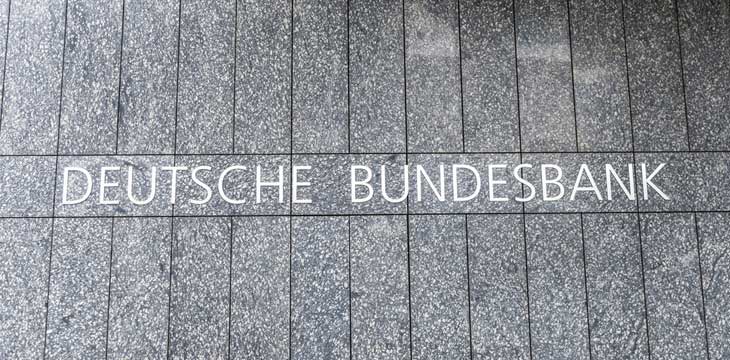|
Getting your Trinity Audio player ready...
|
Deutsche Bundesbank has expressed doubt over the suitability of using blockchain technology in financial markets amid rising industry use cases.
In its monthly financial report, Germany’s central bank noted that reliance on tokenized deposits and stablecoins could trigger uncertainty among market players. Deutsche Bundesbank notes that existing legislation does not provide whether or not tokenized deposits will be considered deposits in the natural sense.
This poses several challenges for the industry, including the application of deposit insurance and its applicability under the European Union’s (EU) Markets in Crypto Assets (MiCA) rules. The report noted that under the MiCA rules, tokenized deposits may be designated as e-money tokens, depending on their design.
The German central bank has a lukewarm approach to using blockchain in financial markets following the failures of some high-profile projects. Citing the collapse of the ASX Chess Project, an attempt by the Australian Securities Exchange to use blockchain to replace its settlement platform, Deutsche Bundesbank has adopted a hard stance on the system.
Despite the skepticism of blockchain, the report pushes for central bank money to be used to settle transactions on distributed ledgers.
“Should new technologies such as DLT reach market maturity and market penetration, it must be ensured that central bank money can also be used for these new types of settlement,” the report read. “Central banks are caught between innovation and stability.”
The Deutsche Bundesbank notes that while blockchain solutions may offer several benefits for the financial system, the projects may not be rolled out until there are real-life use cases for the technology. The report cites the slow pace of financial systems to adapt to new changes as a major factor standing in the way of launching blockchain solutions.
“Financial market infrastructures show a high level of inertia, even if superior solutions have become available in the meantime,” the Deutsche Bundesbank said.
Industry players have faulted the report on several grounds, saying that the German central bank reached its conclusion without referencing successful blockchain projects. Pundits say the banking regulation did not include the successes of the Broadridge repo platform and the German-based HQLA projects.
Deposit tokens gain significant traction
In the face of Deutsche Bank’s hesitation, deposit tokens have gained significant ground in the German banking industry. In April, the German Banking Industry Committee (GBIC) published a working paper exploring the use of deposit tokens using DLT.
The document revealed the proposed designs for the offering with the four largest banks in the country, indicating an interest in the study.
A similar proposal was presented by the Swiss Banking Association (SBA) in May to launch deposit tokens in the form of a digital Swiss franc. The deposit token, operating as a stablecoin, will offer several use cases in decentralized finance while being interoperable across several platforms.
CoinGeek Conversations with Jack Liu: Bitcoin removes power from money—and that’s liberating

 02-18-2026
02-18-2026 




